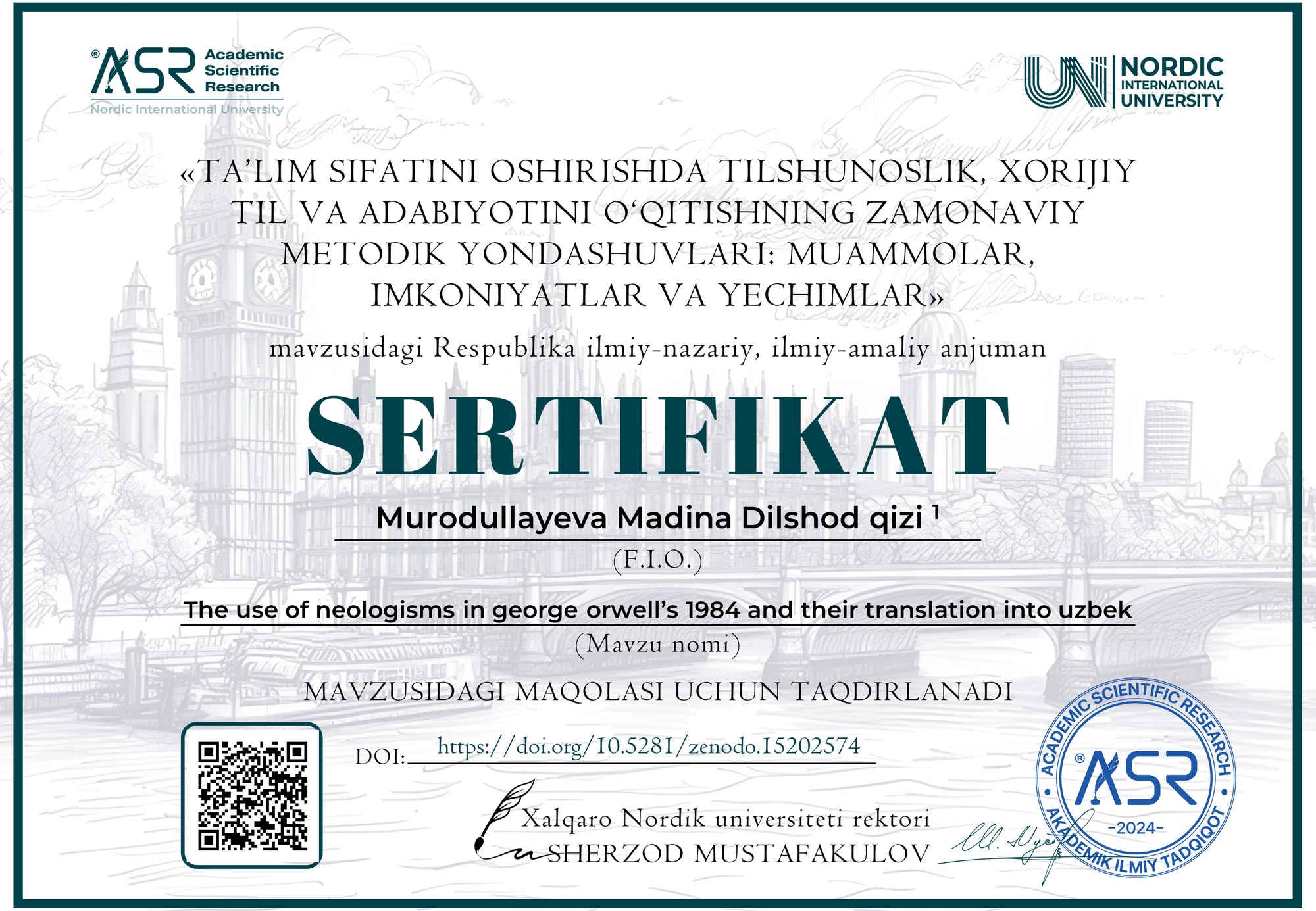Murodullayeva Madina Dilshod qizi 1

DOI: https://doi.org/10.5281/zenodo.15202574
Zenodo community: https://zenodo.org/records/15202574
Nordic_press journal: https://research.nordicuniversity.org/index.php/nordic/article/view/2361
MAQOLANI YUKLAB OLISH
SERTIFIKATNI YUKLAB OLISH
TAQRIZ:
This study by Murodullayeva Madina Dilshod qizi provides a thorough analysis of the challenges involved in translating George Orwell's neologisms from his dystopian novel 1984 into Uzbek. The focus is on understanding how newly coined words, such as "doublethink," "thoughtcrime," and "unperson," retain their political and ideological significance when translated. The author explores various translation strategies, including literal translation, adaptation, and descriptive translation, and evaluates their effectiveness in preserving Orwell’s original meaning and tone.
The article highlights the difficulties that arise due to the structural and cultural differences between English and Uzbek, especially in terms of linguistic nuance and political connotations. While the study acknowledges that the Uzbek translations manage to convey the basic meanings of Orwell’s neologisms, it points out that they often lose the original emotional weight and ideological depth. The paper concludes with recommendations for improving future translations, such as coining new Uzbek neologisms or using footnotes to preserve the political impact of Orwell’s terms.
This research significantly contributes to the field of translation studies, particularly in terms of translating politically charged literature, and offers valuable insights for improving the Uzbek translation of Orwell’s work.



